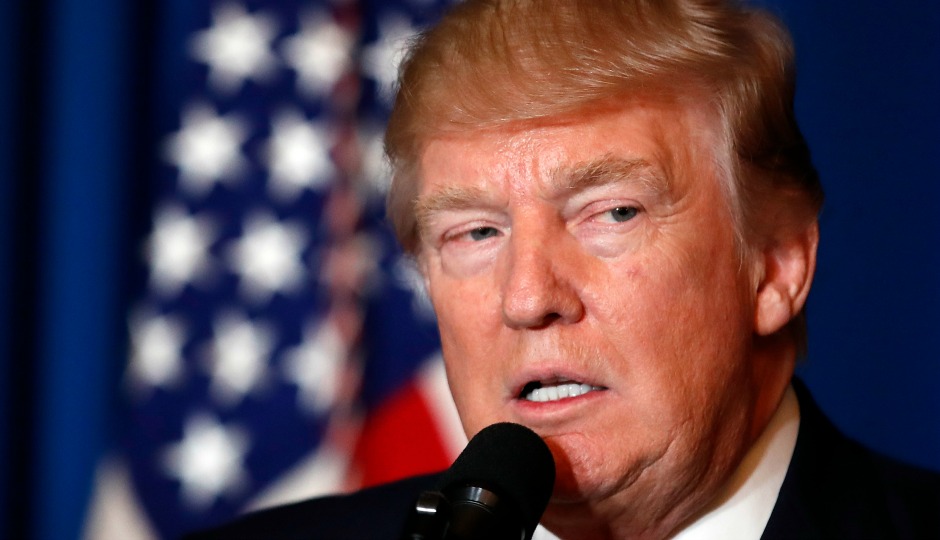Federal Judge Blocks Trump’s Attempt to Cut Funding to Sanctuary Cities

President Donald Trump speaks at Mar-a-Lago, Thursday, April 6, 2017, in Palm Beach, Fla. (AP Photo/Alex Brandon)
A federal judge has thwarted President Donald Trump’s attempt to cut funding from so-called sanctuary cities.
Trump issued an executive order in February that would strip federal grant money “from the sanctuary states and cities that harbor illegal immigrants,” according to White House press secretary Sean Spicer.
The White House didn’t specify which grants the government would cut nor how it would do so. There’s no official definition for the term “sanctuary city,” but Philadelphia is one of many cities commonly referred to as such.
Both San Fransisco and Santa Clara counties in California sued Trump’s administration after the executive order was issued.
Yesterday, U.S. District Judge William Orrick in San Fransisco ruled that the federal government does not have the authority to cut “federal funding that bears no meaningful relationship to immigration enforcement … merely because a jurisdiction chooses an immigration enforcement strategy of which the President disapproves.”
Orrick also ruled that Congress – not the federal government – has spending power. His decision will remain in place while the lawsuits move through court.
It’s a major victory for California and other so-called sanctuary cities like Philadelphia – though, as mentioned, it’s unclear how Trump’s executive order would be implemented and which jurisdictions it would effect.
In March, Attorney General Jeff Sessions said the Department of Justice would withhold grants from cities that do not cooperate with 8 U.S. Code § 1373, which mandates that all jurisdictions must communicate with federal agencies and the Immigration and Naturalization Service.
Last week, the DOJ wrote to Mayor Jim Kenney and officials from eight other jurisdictions, claiming that they have until June 30th to send documentation that proves that they comply with the federal code.
City spokesperson Lauren Hitt said in March that Sessions’s threat didn’t necessarily put Philadelphia at risk of losing funds, as guidelines he reiterated were already in place under former President Barack Obama.
Follow @ClaireSasko on Twitter.


